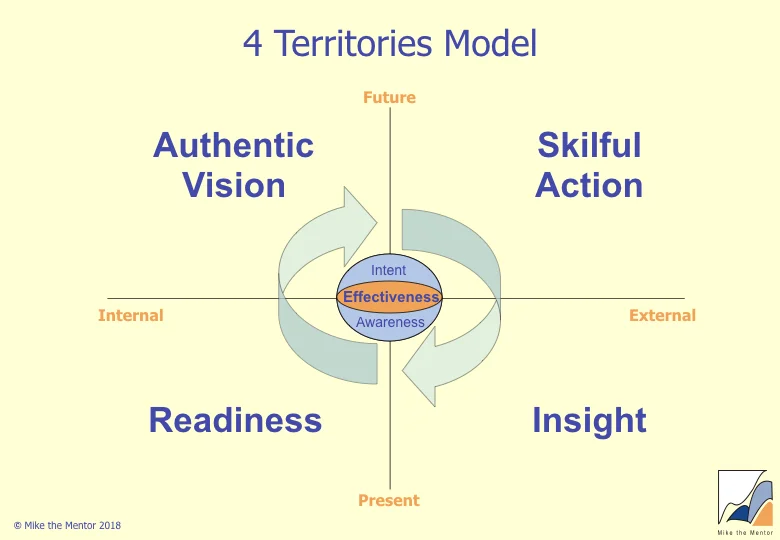Intergral Leadership
/The recognition that leadership is about more than the individual leader is a central insight of Integral Leadership. The Integral movement is based on the work of the American philosopher Ken Wilber. He became interested in finding a universal model that could contain within it all the diverse ways we have of understanding human potential - mysticism, psychology, Marxism, systems theory, behaviourism, and so on. He collected all the models he could find and distilled their major components into five simple elements (see The Integral Model).
An Integral approach will include each of these five elements (quadrants, stages, lines, states and types), and will have a comprehensive approach within each element. To illustrate this, the diagram looks at leadership development using just one of these elements - the quadrants. Each quadrant represents a different perspective on leadership development, and a different proposition as to what makes for effective leadership.
Each is a valid approach in its own right but, applied in isolation, will only give a partial view of leadership, and so provide access to only some of the resources necessary for effective leadership. An Integral approach, by creating a richer view of reality and providing access to the full range of resources in any situation, will inevitably have a greater likelihood of success.


